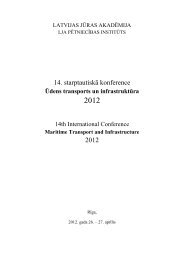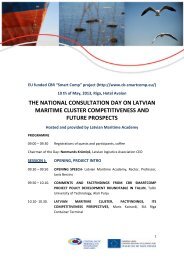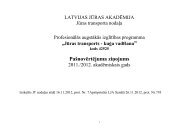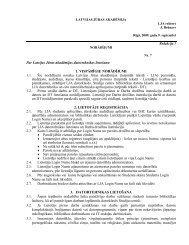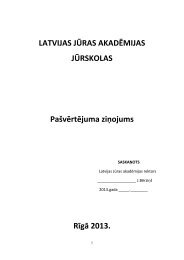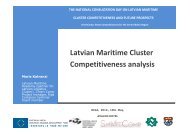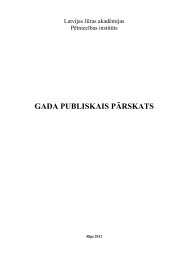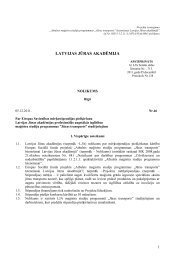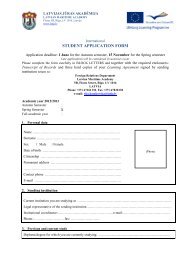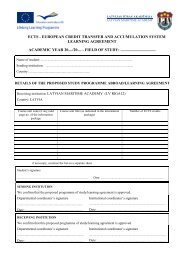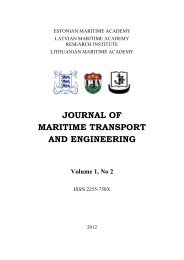observation, critical thinking and ability to distinguish colors, and competencies of socialization [20, 21].When people accept superficial communication, their communication with a living man will be worse.Direct relationship with the personality of the professional educator creates the psychosocial climatefor deep analytic thinking. This relationship influences the professional self-concept and self-creation ofthe student at the level of formal education. Long-term and deep analytical thinking consistentlydetermines the cognitive self-development of the personality from the psychologically didactic point ofview. The images cause a rapid and short-term effect without influencing the mentioned selfdevelopment.So, many employees of the USA major companies - Apple, eBay, Google, Yahoo, Hewlett-Packard -send their children to the Silicon Valley school, where computers are prohibited [18]. Great attention isgiven to the natural and authentic socio-cultural life of children and the academic youth.Education policy requires the students’ relationship with e-technologies. This relationship must beharmonized with the development of their psychic health. The above-mentioned factors (concentration,imagination, creativity, etc.) are extremely important for learning.The scientists note that teenagers and adolescents become passive, impatient and are frequentlyunable to tell a three-minute story about the picture shown and develop their imagination hygiene, physicand psychic health [14, 21, 22]. The development of patience is very important for work at sea underextreme conditions. When e-learning technologies are used too often, personal relationship with thelecturer is weakened. However, only this relationship determines the development of the personality.Sometimes students prefer discussions without using e-technologies. However, this is moreimportant for socio-humanitarian subjects of the maritime studies. Technological subjects are in a closerrelationship with the monitor. The computer marks the student’s everyday life. So, the creation of ahuman relationship at socio-humanitarian subjects expresses a positive contrast to technological subjectsand the student’s technological everyday life, in reference to anthropology, psychic health, hodegetics andmanagement of the maritime leader’s attention (it is usual, when people are reading on the Internet,various types of additional information are distracting their attention).Most people are visuals. Naturally, the mentioned positive contrast must be related with clear andaesthetic models or illustrations of the studied ideas in the textbooks, handouts, flipcharts, etc. at thedidactic level. The development of the reflective writing competence is very appropriate from the point ofview of maritime self-concept, self-creation and seafarers’ work reality.Reflective writing is creativity, which helps to realize the management of attention, liberation andmanagement of emotions, structuring of ideas, self-orientation, imagination of the practical sense of life,finding of solace, deepening and maturing of the personality’s relationship with oneself, and a hopefulplanning of duties and recreation at the existential and psycho-therapeutic levels. Professor JuozasGirnius (1915–1994), the most famous Lithuanian existentialist, recommended to his students to writeone line of the text daily. Writing stabilizes a human psychologically. It is important, because theseafarers experience difficulties under extreme conditions of work and specific relationships.We can note a problematic relationship between two fundamental ideas of the Bologna process inthe mentioned context in psycho-educational reference to:– E-learning by applying new technologies;– Development of critical and creative thinking [8].Technology is characterized by a template and a standard. However, scientifically groundededucation seeks to develop critical thinking, focusing on the non-standard, individual, innovative andresponsible thinking. The Bologna process requires respect to different needs of the students.It is natural that scientists value the Bologna process differently. They note problematic issues,which are almost eliminated from the process of studies. These issues are: the students’ social isolation,the sense of learning, the abilities of self-orientation in non-standard situations at work, etc. [6, 17, 12].Most valuable scientific works analyze the situation of Homo informaticus in the culture, thestudents’ protests, technique as a depersonalized political ideology, and ambivalence of the nature oftechnologies that relates to the power and responsibility of a human [2, 9, 10, 24].Therefore, e-learning must be purposefully and carefully harmonized with the natural needs of thepersonality and his / her health at the level of psycho-social development.30
Protestant ideology as an eventual factor of maritime economismOne of the factors of economism is protestant ideology, which originated in the 16 th century. Theproblem of the protestant ideology and maritime economism is analyzed in regard to protestant socioculturalcontext, school education, influence of pietism to rocking lullabies, protestant economism,Calvinistic moral control, the importance of the universal upbringing of future seafarers, mentality ofCalvinistic moralism, rigorous psychology, protestant predestination, excessive diligence, minimalism,atheistic moralism, secular technocratism, education and culture of seafarers in Eastern Europe.A great progress in the modernization process of seafarers’ training ideologically occurred in theprotestant countries located in the north of the Old Continent. Protestantism has enriched the Christianheritage in Europe. On the one hand, it is very important for ecumenism. On the other hand, protestant,especially ultra-protestant approach has narrowed the human nature and purpose.The spread of Protestantism has determined bankruptcies of schools. The deserted monasteriesclosed colleges and universities. Schools were neglected. Individualistic needs overshadowed social needsfrom the point of view of school education [15].Decoration of the churches interiors and school education were impoverished in the protestant partof Europe. Ideological transformation of theology narrowed the approach to the personality and his / hereducation. The protestant pietism of the 18 th century promoted religious songs, but eliminated rockinglullabies, which were characterized by maritime topics. Rocking lullaby develops the maritime spirit of achild. It promotes the natural maritime vocation from the integrated and hodegetical point of view.The traditions of puritan upbringing in Protestantism have influenced professional training. Theprotestant asceticism marked the ethics and spirit of capitalism [25]. The theological doctrine of the originof capitalism and labor was developed. This doctrine highlights the relationship of large saving andeconomism. Technology is emphasized. Vocational education, which is characterized by creativefreedom, cultural, educational and socio-psychological value of the personality, is overlooked.The social isolation phenomenon occurred in the protestant countries. Social responsibility wasreduced to individualistic happiness, modesty and large saving. Indifferentism, religious individualismand suicidal tendencies began to manifest themselves [7].Calvinism pioneer John Calvin - the church reformer after Martin Luther - imposed a strict moralcontrol over public life [5]. Calvinism of the Netherlands was characterized by the disciplinary action -windows without curtains. The people had the right to see, for example, that the seafarer’s wife wasfaithful, waiting for her husband and properly behaving at home, or that lifestyle of the families is correctand modest. When there appeared more pieces of furniture at home, the taxes were raised. The Protestantsshowed hospitality. They were afraid of being richer than others and of negative gossip [11].The protestant mental isolation determined the elimination of the idea of maritime students’universal (holistic) training. However, this idea and the free expression of the personality in his / her lifeare very important, because the EU conventions in relation to higher education require educatingprofessional creativity, especially creativity of the seafarers, working under extreme conditions. Thescientists have found that non-standard situations are most frequent working at sea [26].<strong>Maritime</strong> businessmen in the protestant countries of North-West Europe are characterized bypsychological compensation manifesting arrogance, rigorism and desire to teach others, especiallyEastern Europeans how to work and how to train a seafarer. The Dutch Calvinist tradition evolved thementality “we know better” that stimulates the improvement of the world and predestinationally “badhumanity” [4]. It was theologically believed that a human is not justified by works but by faith. However,the fear of condemnation promoted to work in all forces. A protestant life was characterized by theindustrial mentality.On the one hand, industrial mentality was associated with success and entrepreneurship. TheNetherlands, Switzerland, England, Scotland and the USA (Harvard, Princeton, Yale universities)blossomed in New Times [13]. On the other hand, the Calvinistic North-West Europe was characterizedby very persistent and increased pace of work in reference to the Nordic character. However, anotherextreme is poverty, which is often related to laziness, for example in some southern regions of CatholicItaly.Erosion of professional vocation and of love for work raised an egocentric tendency of salvation. Itnarrowed the professional vocation and satisfaction at creative work. Minimalism of the joy of lifetransformed a noble work to nearly a slavish duty. This duty is related to a higher stress, excessivefatigue, lack of recreation and concern about predestination. The Calvinists reduced the concept of rest tolounging. So, they invested the profit into production [3].31
- Page 1 and 2: ESTONIAN MARITIME ACADEMYLATVIAN MA
- Page 3 and 4: CONTENTSRoberts GailītisASSESSMENT
- Page 5 and 6: 1. The aim of research and methodol
- Page 7 and 8: Figure 2. Age structure of merchant
- Page 9 and 10: their maritime education, takes dec
- Page 11 and 12: Therefore it can be concluded that
- Page 13 and 14: MULTI ZONES HVAC SYSTEMS’ CONTROL
- Page 15 and 16: Figure 1. Multi-zone air-conditioni
- Page 17 and 18: The control mechanism of the mathem
- Page 19 and 20: Results and discussionThe temperatu
- Page 21 and 22: PREDICTION OF EMISSIONS AND PERFORM
- Page 23 and 24: In order to measure brake torque, t
- Page 25 and 26: Predicted & Actual Values of SFC, g
- Page 27 and 28: 8. Canakci, M., Ozsezen, A.N., Arca
- Page 29: It is appropriate to systemize the
- Page 33 and 34: thinking is innovative, responsible
- Page 35 and 36: 17. Professoren-Protest gegen 10 Ja
- Page 37 and 38: affected by competing ports [2]. Ne
- Page 39 and 40: Tendencies of cargo flows volume an
- Page 41 and 42: increase, inflation decreases, beca
- Page 43 and 44: 4. Belova, J., Mickiene, R. Economi
- Page 45 and 46: Description of researchIf volume co
- Page 47 and 48: p p 1 10(11)C021Here, C1is a speed
- Page 49 and 50: Figure 4. Dependence of pressure on
- Page 51 and 52: EXPERIMENTAL INVESTIGATIONS OF IC D
- Page 53 and 54: Figure 2. Prototype of variable geo
- Page 55 and 56: 4. Experimental equipment and softw
- Page 57 and 58: Figure 6. Dependence of main indice
- Page 59 and 60: Figure 8. Dependence of main indice
- Page 61 and 62: DEVELOPMENT AND APPLICATION OF SIMU
- Page 63 and 64: program was developed regarding the
- Page 65 and 66: F11: High sea water pressure alarmF
- Page 67 and 68: In the main interface as given in F
- Page 69 and 70: Figure 7. Failure mode selection sc
- Page 71 and 72: Figure 11. Causes of failure select
- Page 73 and 74: 6. Xiaoyan, X., Min, H., Huayao, Z.
- Page 75 and 76: Asia region is fastest developing n
- Page 77 and 78: performance of design. Speed is the
- Page 79 and 80: In summary, it can be said that wor
- Page 81 and 82:
ReferencesArticles1. Belova, J., Mi
- Page 83 and 84:
Grain cargo life cycleGrains are ca
- Page 85 and 86:
Maritime law is made and enforced b
- Page 87 and 88:
European and Asian countries, and e
- Page 89 and 90:
EVALUATION OF IMO SECOND GENERATION
- Page 91 and 92:
Sample vessel: a container shipA co
- Page 93 and 94:
Natural roll frequency in calm wate
- Page 95 and 96:
REQUIREMENTS FOR THE MANUSCRIPTSSUB



